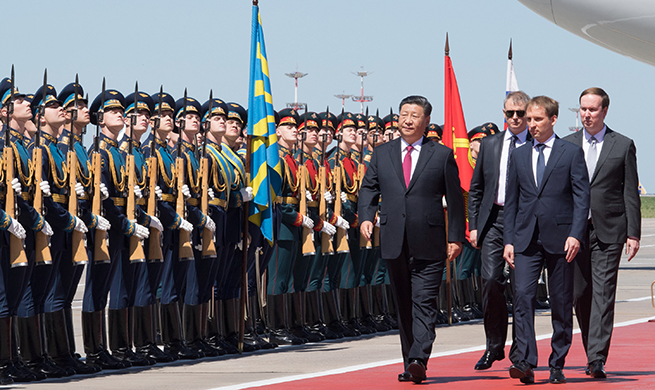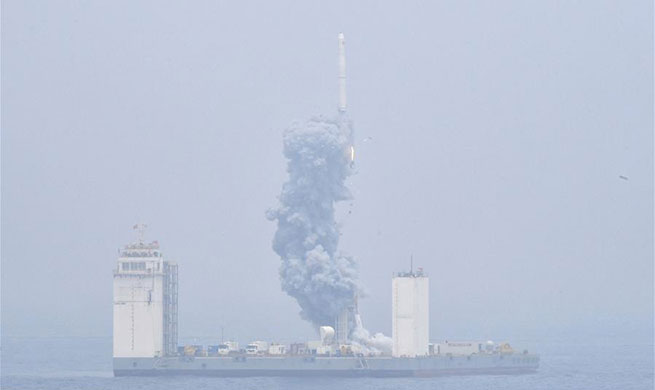JERUSALEM, June 5 (Xinhua) -- Israeli researchers have developed a new efficient and inexpensive method of producing radioactive isotopes for nuclear medicine and imaging technologies such as CT and PET CT scans.
The development was reported by the southern Ben-Gurion University on Wednesday.
Isotopes are types of the same chemical element, which differ in their mass, due to a different number of neutrons. Isotopes are similar in their chemical properties but differ in their physical behavior.
The new method eliminates the need for enriched uranium of a quality suitable for nuclear weapons, and a nuclear reactor.
In nuclear medicine, the isotope technetium-99m is often used for imaging. This is an unstable isotope with a half-life of only six hours.
Another disadvantage of the technetium-99m isotope is that it must be produced at the imaging clinic.
Usually, enriched uranium of a quality suitable for nuclear weapons, and a nuclear reactor are required to produce molybdenum-99, which breaks down into technetium-99m.
The Israeli invention uses molybdenum-100, a stable isotope found in nature, and a linear electron accelerator to produce molybdenum-99 and technetium-99m.
This process can also produce other radioactive isotopes with a short half-life, as a byproduct for use in PET CT scans.
















